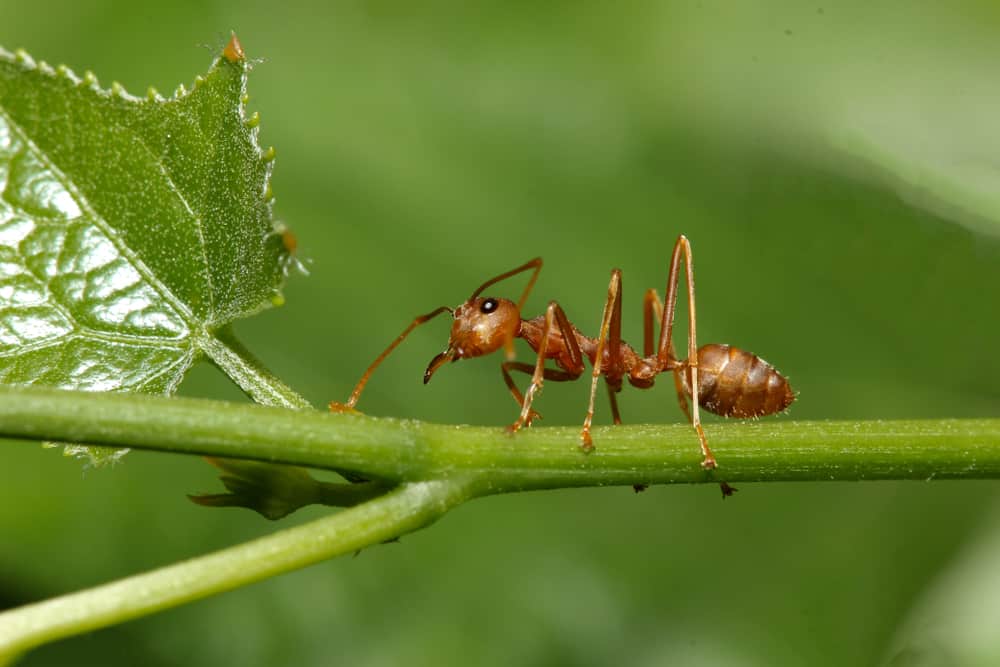
Even though ants are not necessarily bad for your garden, they can be quite annoying to deal with sometimes. So, gardeners struggle with different methods used to take care of these pests. As mentioned by many experts, using sprays and other chemical methods only causes further problems for your garden. It is important to use natural ways to get rid of ants in the garden if you’re dealing with a specific species that is causing harm to your plants.
If you’re not aware of any natural ways to get rid of ants in the garden, then go through the list of practical techniques mentioned below to get ahead of this problem.
What Are The Natural Ways To Get Rid Of Ants In The Garden?
- Use Peppers
This is arguably one of the easiest methods that can be used to get rid of ants in the garden. Depending upon the availability, you can go for either the red or the black peppers. Make sure that these peppers are finely ground, and then sprinkle them over the garden surface. This method is completely safe to use and won’t negatively impact the growth of your garden. So, if you want to keep a good pace of worm activity, try sprinkling peppers around the plants.
You can try any type of chili powder or pepper, and the ants won’t get into the garden again. The best thing about this method is that it won’t impact your plants negatively. So, if you’re worried about damaging your plants, using peppers should be the perfect option for your garden. Using anything like vinegar or boiling water in the garden will only damage the plants in the long run. For this reason, you should always make sure that the ingredients or remedies you’re trying to use are harmless to the plants in your garden.
- Fresh Cucumber Peels
Using cucumber peels in your garden is another effective method of getting rid of the ants. The only drawback of using this method is that you will have to add new peels every few days. However, this is one of the safest methods, and the decomposition of these peels is also beneficial for the soil. So, you’re not only removing ants from the garden but also helping plants with more nutrients. Luckily, you won’t have to follow this method indefinitely, and the ants should be gone from your garden after a few weeks.
You can choose any type of cucumber peels in your garden, and it won’t be too problematic to get rid of the ant issue. So, if you can’t get your hands on especially bitter cucumber, the normal ones will work perfectly. Depending upon the size of your garden, this method can take a fair bit of time. So, you will have to bear with the added work on a consistent basis until the ants are gone from your garden. After the ant issue is eliminated, you can decrease the frequency of applying this method to your plants.
- Sprinkling Cinnamon
If you don’t feel like using cucumber peels, then using cinnamon is the best option for you. Aside from killing and removing the plants from your garden, it is also beneficial for your plants. So, you don’t have to worry about this method damaging the growth of your plants. You can use this method to get instant results. You won’t have to go through an extended period, and within a few days, your ant problem will be eliminated. Other than that, it will only take a few minutes to sprinkle this spice over the garden.
Even though you can get rid of the ants while using other powdered spices, cinnamon brings the best value to the table. But if you don’t have this ingredient available in your home, then, by all means, go for other alternatives, and you should get similar results in the garden.
These were a few natural methods that could be used to get rid of ants in the garden. So, if you’re struggling with an ant problem and want to get over this issue naturally without damaging your plants, try starting with sprinkling cinnamon. You won’t have to try any other method, and the problem will be fixed within days. Moreover, cinnamon will encourage the growth of your plants.
